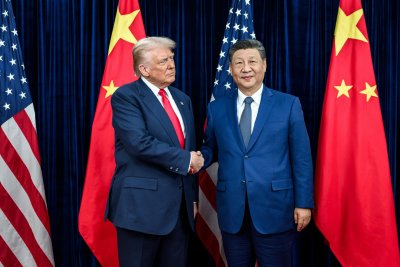Nov. 9 (UPI) — China’s Commerce Ministry announced Sunday that it would suspend a ban on the export of some rare earth metals to the United States as trade tensions ease.
The affected metals include gallium and germanium, which are used to make advanced semiconductors for computing, as well as antimony, which is used to make explosives, and super-hard metals such as tungsten, which is used in armor-piercing ammunition. The fifth metal covered by the suspension of the ban is graphite.
China’s Commerce Ministry had announced the export ban in December 2024 ahead of the second administration of President Donald Trump, “in order to safeguard national security and interests and fulfill international obligations such as non-proliferation.”
It said in a statement Sunday that the ban on the five metals would be suspended until Nov. 27, 2026.
The move comes after Trump met with Chinese President Xi Jinping in South Korea last month ahead of the Asia-Pacific Economic Cooperation summit.
The suspension is part of a broader economic deal struck during that meeting, which both governments described as a step toward stabilizing bilateral trade relations after several years of heightened tensions.
According to a White House fact sheet, China agreed to effectively eliminate its export controls on rare earth elements and other critical minerals, while issuing “general licenses” that allow shipments of gallium, germanium, antimony, tungsten and graphite to continue flowing to U.S. manufacturers and their suppliers.
The White House said the agreement would help ensure American companies have reliable access to essential materials used in advanced technologies, while Beijing would benefit from renewed purchases of agricultural goods and other exports.
The deal also included Chinese commitments to halt the export of fentanyl precursors, ease restrictions on U.S. semiconductor firms, and expand purchases of U.S. farm products.
China’s statement on Sunday did not reference the broader trade framework or the general licenses described by the White House. Instead, it said only that the suspension of the 2024 export ban would last for one year — marking a discrepancy in American and Chinese framing of the deal.
China controls the vast majority of the world’s supply of each of the five rare earth metals, and analysts have warned that prolonged export restrictions could disrupt global manufacturing tied to them.
